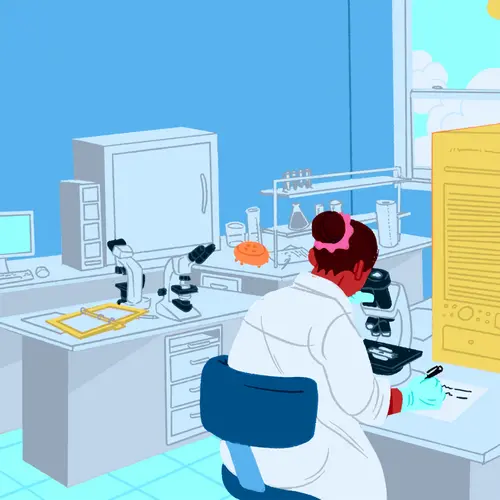If you have stage IV thyroid cancer, you may want to know about your prognosis -- an estimate of how serious the disease is and how it will affect you in the future. Your outlook depends on a lot of things, including the type of thyroid cancer you have, your age, and your overall health.
Some people prefer not to learn their prognosis, and that's OK. But if you do want the information, the best person to ask is your doctor. They know best about your specific health situation and can answer any questions you have.
What Affects Your Prognosis?
Stage IV thyroid cancer is cancer that has spread from your thyroid gland to other parts of your neck, lymph nodes, or distant areas of your body like your lungs or bones. Several things have an impact on your prognosis, including:
Your type of thyroid cancer. There are four main kinds:
- Papillary
- Follicular
- Medullary
- Anaplastic
Each type acts differently. Papillary thyroid cancer is the most common kind. It has the best outlook because it grows slowly. Even when this cancer spreads to the lymph nodes, it responds well to treatment.
Follicular and medullary thyroid cancers are less common than papillary cancer, but their prognosis is good overall. Anaplastic is the fastest-growing type of thyroid cancer, and it doesn't respond well to treatment.
Your age. People with papillary or follicular cancers who are younger than 40 may have a better outlook than those who are older.
Your health. When you start out in good health, you usually can handle treatment and its side effects better.
How far the cancer has spread. Cancers that have spread just outside the thyroid gland have a better prognosis than those that have spread to distant parts of the body.
Whether you have multiple endocrine neoplasia type 2B (MEN2B). People who have this inherited disease have greater odds of getting medullary thyroid cancer. They are also often diagnosed at a late stage, when the cancer is harder to treat.
Your treatment. Treatments for stage IV thyroid cancer include surgery, radiation therapy, and targeted therapy drugs like lenvatinib (Lenvima) and sorafenib (Nexavar). Which of these treatments you get, and how well your cancer responds to it, can affect your outcome.
What Do Survival Rates Mean?
When you ask your doctor about your prognosis, they may talk to you about something called "5-year survival rates." There are a few important things to know when you get this information.
Survival rates are based on research done on large groups of people. They can't predict exactly what will happen to you. Your outlook depends on things like your age, treatment plan, overall health, etc.
Also, the research that these numbers come from was done 5 or more years ago. Treatments have improved since then.
For thyroid cancer, 5-year survival rates are an estimate of the percentage of people with your cancer type and stage who are still alive 5 years or more after diagnosis, compared to the general population. So if your doctor says the survival rate is 96%, it means that people with thyroid cancer are 96% as likely as people without this cancer to be alive 5 years after diagnosis.
There's one more complication about interpreting survival rates for thyroid cancer. The numbers come from the National Cancer Institute's Surveillance, Epidemiology, and End Results (SEER) database, which collects cancer survival statistics. This database does not use the same staging system (stages I to IV) as your doctor. Instead, it groups thyroid cancers into three stages:
- Localized: The cancer hasn't spread outside the thyroid.
- Regional: The cancer has spread to nearby tissues.
- Distant: The cancer has spread to other parts of the body, such as the bones.
Stage IV thyroid cancer could be regional or distant, depending on where it has spread. Your doctor will tell you which of these stages your cancer fits into.
The 5-year relative survival rates for each type of stage IV thyroid cancer are:
Papillary thyroid cancer: Regional - 99%, Distant - 75%
Follicular thyroid cancer: Regional - 98%, Distant - 63%
Medullary thyroid cancer: Regional - 90%, Distant - 40%
Anaplastic thyroid cancer: Regional - 9%, Distant - 4%
Remember, everyone is different. Ask your doctor what you can expect based on your type of cancer and other things that are unique to you.

